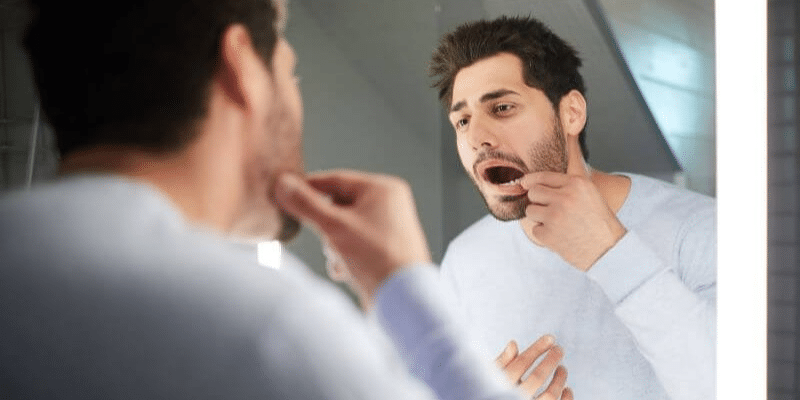Black Teeth: Causes & Treatments
For a lot of people, maintaining a healthy smile can be a great source of confidence, which is why getting black teeth can be a source of both discomfort and embarrassment. Modern dentistry has come a long way, meaning treatments and hygiene can be performed with ease as well as range, but issues can still arise depending on how you take care of your own teeth from day to day.
It’s important to follow your dentist’s advice on oral hygiene, since the development of bacteria can lead to decay that, if left unchecked, can keep decaying more of your tooth, which can cause black stains on teeth, multiple rotting teeth or reach the pulp and leave you with a completely dead tooth. Such cases will then require more extensive work, which will likely end up costing more too. Here, we will look into the causes of a tooth turning black and what can be done about it.
What Causes Black Teeth?
A great deal of dental issues start with poor oral hygiene. For example, irregular brushing and flossing – as well as not going for regular check-ups – can result in the build-up of plaque, which can lead to tooth decay. Consuming sugary foods and drinks, as well as smoking or excessive alcohol consumption, can further exacerbate these issues.
Decay can then lead to cavities forming, which are known to cause more pain the longer they are left untreated. They will also cause aesthetic changes, starting with light discoloration that progresses to teeth turning black or dark brown. A black tooth may also be the sign of a dead tooth, depending on how far the decay has penetrated.
However, whilst decay is an internal issue, getting black teeth can also come from external causes such as:
Certain foods and drinks that cause staining.
Smoking
Tartar build-up from lack of hygiene
How to Stop Your Teeth Turning Black: Preventative Measures

As mentioned previously, avoiding black stains on teeth is best done through a routine of oral hygiene. Ultimately, you want to ensure plaque is removed regularly so that it does not form into tartar. This involves brushing your teeth twice a day and supporting this with flossing. If tartar does form and begins building up, the threat of decay and gum disease arises, so a dental professional will be required to remove it properly before the damage begins.
You should also avoid smoking and consuming dark-coloured foods and drinks repeatedly. Using a whitening toothpaste and avoiding foods that are sugary and sticky can also help externally.
These are general guidelines but are known to prevent teeth turning black as a preventative measure against cavities. They will also help against black stains on teeth that may be coming from one of the more superficial external causes. However, if you already have a dead tooth or multiple rotting teeth, medical intervention is required to treat your black teeth.
Each person is different, which is why you should always consult your dentist and follow the advice they give you.
Treating Black Teeth: Possible Solutions
There are many innovative dental treatments available for a number of problems these days, including black teeth, which involves addressing the underlying issue. Which treatment you receive depends on what is affecting you along with other individual circumstances.
Interested in Dental Treatment? Find the Right Specialist at a Fraction of the Cost
Qunomedical only lists dental clinics and dentists that have been thoroughly vetted with quality and affordability in mind. Contact us for your 100% free, non-binding assessment.
Dental Crowns: these can help restore a damaged tooth by shaving it down and attaching a custom-made, tooth-shaped cap on top. This also restores the strength and functionality of your tooth, and ultimately eliminates the presence of a black tooth on your jaw.
Veneers: if your black teeth are caused by more superficial factors, they can be shaved down and have veneers placed on them, which are custom-made shells that are highly popular as a cosmetic solution.
Dental Implants: if your teeth are turning black because extensive decay is affecting them, they may need extraction. An implant can then be inserted into the gap, restoring a full row of teeth again. If multiple rotting teeth need to be removed, a bridge may also be installed, which can cover a wider gap with just two implants. Bear in mind that getting implants does require a surgical procedure, but the outcome is a long-lasting and natural-looking tooth.
Where to Find Excellent Dentistry that Is Affordable
Every year, millions of people travel abroad for their dental work. This is because some countries offer the combined advantage of highly professional procedures for a far lower cost than in other parts of the world. Popular destinations include Turkey, Croatia and Hungary, where qualified dentists operate in state-of-the-art facilities, where they welcome the arrival of foreign patients. If you desire any kind of treatment but need it to be affordable, reach out to us so we can pair you with one of the vetted doctors we work with.
Sources:
NHS Inform (2023): 'Tooth Decay', last accessed on 26.10.2023
Arm & Hammer: 'Black Tartar on Teeth: What Is It & How to Prevent It', last accessed on 26.10.2023
Jon Johnson (2023): 'Why Do Teeth Turn Black', last accessed on 26.10.2023
Jennifer Huizen (2023): 'Black Teeth - Causes, Symptoms & Treatment Options', last accessed on 26.10.2023
Related Tags
Recent Stories
The 9 Best Countries for Veneers
Dental treatment abroad is becoming more popular. But, what is the best country for veneers? We've laid out the 9 best options based on quality and price. read more...The 9 Best Countries for Dental Implants - Worldwide
Dental tourism is booming but what is the best country for dental implants? We list the best places for dental implants for quality and price read more...

Patient manager
Frieda
Your personal Patient Manager
Let's talk
Still unsure? Feeling overwhelmed? Talking to a real person can give you the guidance and reassurance needed. You don’t have to do it alone. Let’s find the right doctor together.






